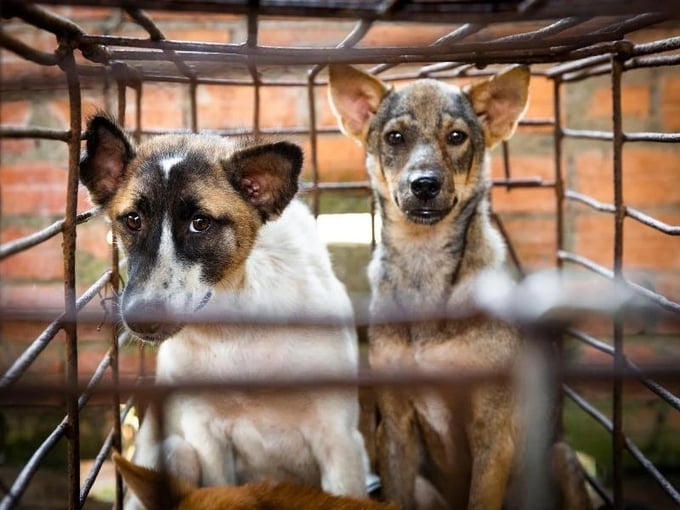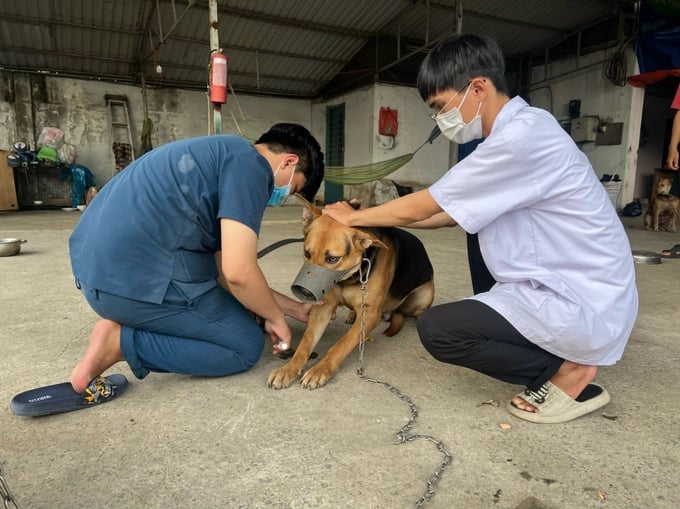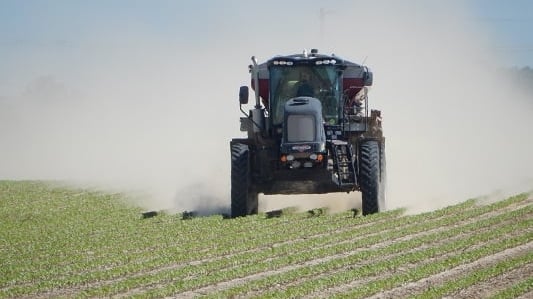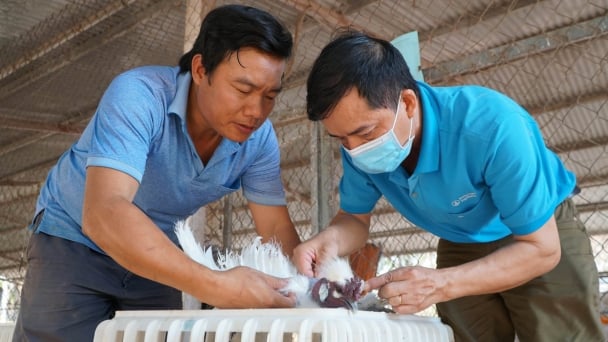May 16, 2025 | 02:18 GMT +7
May 16, 2025 | 02:18 GMT +7
Hotline: 0913.378.918
May 16, 2025 | 02:18 GMT +7
Hotline: 0913.378.918

By establishing a "rabies-free zone" and eliminating dog and cat meat trade and consumption, the new directive from the city aims to contribute to making Hanoi a civilized city.
Accordingly, the directive outlined a multifaceted strategy that includes strict enforcement and coordination among various state agencies. Additionally, it emphasizes the urgent need to prevent the spread of rabies in Hanoi, with a focus on achieving a rabies vaccination rate of over 90% for domesticated dogs and cats.
Stakeholders must monitor and impose severe penalties to all illegal activities involving the sale, transportation, slaughter, or trade of dog and cat meat. Furthermore, the city will deploy mobile inspection teams on major transportation routes to control and prevent the unauthorized transportation of live dogs and cats.
Furthermore, the directive promotes mass media campaigns to raise awareness regarding the risks of rabies and the importance of responsibly confining pets; as well as encourage a shift away from the consumption of dog and cat meat. Consequently, Hanoi aims to cultivate a more compassionate attitude towards animals as a whole.
With the establishment of rabies-free zones and the elimination of dog and cat meat trade and consumption, the city's new directive seeks to contribute to the construction of Hanoi as a civilized and tourist-friendly city, with a focus on adhering to international standards regarding animal welfare and food safety.
Rahul Sehgal, Director - International Advocacy for the Soi Dog International Foundation, remarked, "This initiative demonstrates the capital city's strong commitment to modernizing in compliance with contemporary global standards. We will continue to provide support to facilitate this progress in the future."
This decision plays a pivotal role in driving positive change towards eliminating the trade and consumption of dog and cat meat, thereby reaffirming Hanoi's pioneering role in this field in Vietnam.
The directive, aimed at eliminating the trade and consumption of dog and cat meat, was issued following the report of 102 rabies outbreaks in 29 provinces and cities. The rabies outbreaks resulted in fatalities and transmission nationwide. As a result, the directive emphasized the urgent need to prevent the spread of rabies in Hanoi.
Prior to this directive, Hanoi People's Committee issued a different directive on rabies prevention and control, as the city prepares for a challenging summer with an increased risk of rabies in animals.

According to the Hanoi Department of Health, to prevent rabies, the community needs to take proactive measures: actively avoid being attacked by dogs or cats and ensure complete rabies vaccination.
According to this Directive, Hanoi People's Committee tasked the city's Department of Agriculture and Rural Development with inspecting the prevention and control of animal rabies in districts, communes, and towns. The Department also instructed the Sub-Department of Livestock, Aquaculture, and Animal Health to guide districts in establishing and maintaining rabies-free zones.
On the other hand, the Directive instructed the Department of Health to guide the Hanoi Center for Disease Control in sharing information pertaining to cases of individuals bitten by dogs or cats that are infected with or suspected of having rabies. Moreover, the Hanoi CDC must coordinate with the Sub-Department of Livestock, Aquaculture, and Animal Health to investigate, determine the causes, and implement measures to prevent and control rabies outbreaks in humans in compliance with regulations.
The city also requires the Department of Health to organize comprehensive rabies vaccination and prophylactic treatment campaigns for individuals bitten by animals, with a focus on maintaining a sufficient supply of licensed rabies vaccine and immunoglobulin.
Rabies currently has no specific treatment and a near 100% mortality rate. However, rabies vaccines are available in two forms: active immunization for animals, and vaccination for humans in cases of bites from dogs or cats that are infected or suspected of being infected with rabies.
With a focus on mass vaccination for dogs and cats, and regular supplementary age-appropriate vaccination, Ho Chi Minh city has been recognized as a rabies-free zone. According to the Ho Chi Minh City Center for Disease Control, the local People's Committees have rapidly deployed rabies vaccinations campaigns for dogs and cats. The vaccination cost is 23,000 VND per dose. Notably, residents from the suburban districts of Cu Chi, Hoc Mon, Binh Chanh, Nha Be, and Can Gio are only required to pay 12,500 VND per dose due to a 50% subsidy, as stipulated in Decree No. 23/2021/NQ-HDND issued by the Ho Chi Minh City People's Council on December 9, 2021.
Translated by Nguyen Hai Long

(VAN) Vietnam's draft amendment to Decree No. 156 proposes a mechanism for medicinal herb farming under forest canopies, linking economic development to population retention and the sustainable protection and development of forests.

(VAN) In reality, many craft village models combined with tourism in Son La have proven effective, bringing significant economic benefits to rural communities.

(VAN) The international conference titled Carbon Market: International experiences and recommendations for Vietnam was successfully held recently in Ho Chi Minh City.

(VAN) According to the Project on rearranging provincial and communal administrative units, in 2025, the country will have 34 provinces/cities, 3,321 communes, wards, and special zones, and no district-level organization.

(VAN) The vice president of fertilizer with Stone X Group says the Trump administration’s tariffs are impacting fertilizer markets.

(VAN) Resolution 57 offers Vietnam a significant opportunity to narrow the global genetic technology disparity and convert its extensive genetic resources into commercial advantages.

(VAN) The Ministry of Agriculture and Environment will prioritize the implementation of five core and breakthrough solutions in science and technology, in addition to the seven groups of tasks identified in Decision No. 503.